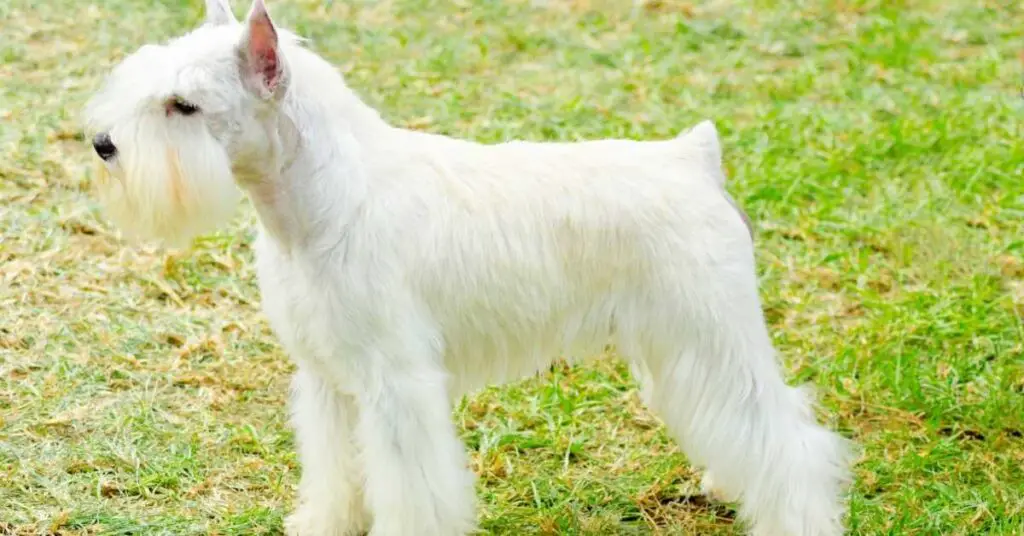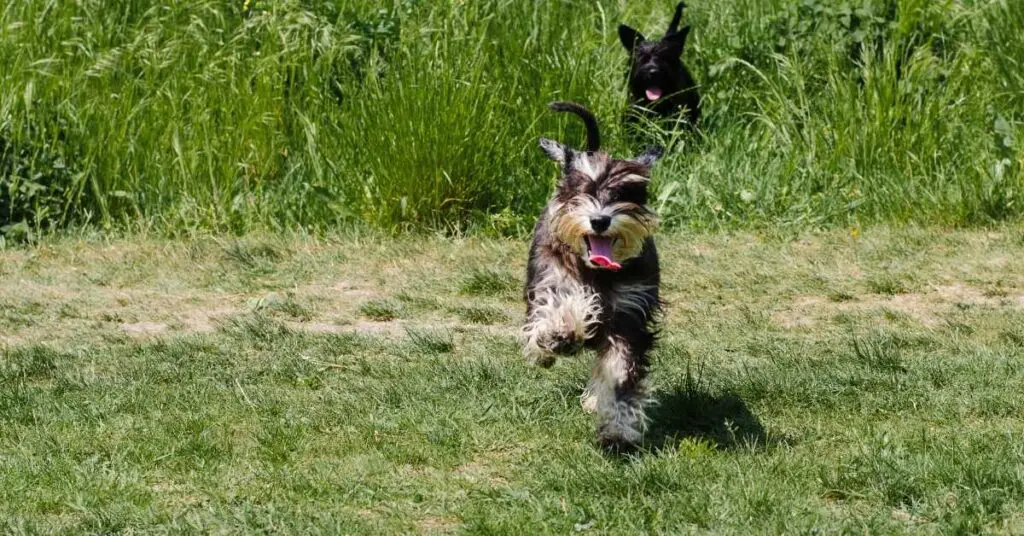How much do miniature schnauzer puppies cost? The cost of Miniature Schnauzer puppies can vary widely, typically ranging from $500 to $2,500. This variation in price is influenced by several factors, including the puppy’s color, age, bloodline, and the overall quality as determined by breeding standards and potential show prospects.
Are you curious about the price of bringing a miniature schnauzer into your loving home? Well, let’s embark on this journey together and uncover the answer.
Just like a treasure waiting to be discovered, the cost of a miniature schnauzer can vary depending on several factors. Breeders, bloodline, health certifications, age, coat color, gender, geographical location, and demand all play a part in determining the price.
But fear not, dear friend, for we will navigate through these considerations and shed light on the expenses associated with welcoming this delightful companion into your life.
So, sit back, relax, and let’s delve into the world of miniature schnauzer costs.
Breeders and Their Reputation
If you’re considering purchasing a Miniature Schnauzer, it’s important to research breeders and their reputation. When looking for a reputable breeder, there are a few key qualifications to consider.
First, ensure that the breeder is knowledgeable about the breed and has experience in raising healthy and well-socialized Schnauzers. Look for breeders who are registered with recognized kennel clubs and adhere to ethical breeding practices.
Additionally, it’s crucial to read customer reviews and testimonials. Hearing about other people’s experiences with the breeder can give you valuable insights into their professionalism and the health of their puppies. Positive reviews can indicate a breeder’s commitment to producing happy and healthy Miniature Schnauzers.
Taking the time to thoroughly research breeders will help ensure a positive and fulfilling experience when bringing home your new furry companion.

Bloodline and Pedigree
When researching breeders and their reputation for Miniature Schnauzers, it’s important to consider the bloodline and pedigree of the puppies.
The bloodline refers to the lineage and ancestry of the dog, while the pedigree is a document that traces the dog’s ancestry for several generations.
The bloodline and pedigree play a crucial role in determining the quality and potential of the Miniature Schnauzer.
If you’re looking for a show-quality Miniature Schnauzer, it’s essential to choose a breeder who has a strong reputation for producing dogs with champion lineage.
Show quality Miniature Schnauzers are those that meet the breed standards and have the potential to excel in dog shows.
A reputable breeder will have a well-documented pedigree that showcases the impressive lineage of their dogs, making them a valuable addition to your family.
Health Certifications and Screening Tests
To ensure the health of your Miniature Schnauzer, it’s important to obtain health certifications and screening tests. These measures help identify any potential genetic health issues that may be prevalent in the breed.
By obtaining health certifications, such as those from the Orthopedic Foundation for Animals (OFA) or the Canine Eye Registration Foundation (CERF), you can ensure that your Miniature Schnauzer is free from common breed-specific health problems like hip dysplasia or eye diseases.
Additionally, screening tests, such as DNA testing for genetic disorders, can provide valuable information about your dog’s overall health. These certifications and tests not only give you peace of mind but also allow you to make informed decisions about breeding, ensuring the continued health and well-being of the Miniature Schnauzer breed.
Age of the Miniature Schnauzer
As a potential buyer, you can expect the cost of a Miniature Schnauzer to vary depending on the age of the dog. Generally, younger puppies tend to be more expensive compared to older dogs. This is because younger puppies require more care and attention, such as vaccinations, deworming, and training.
The cost of vaccinations is an important consideration when determining the overall cost of a Miniature Schnauzer. Puppies need a series of vaccinations to protect them from common diseases, which can add to the initial cost.
Additionally, grooming requirements also play a role in the cost. Miniature Schnauzers have a unique coat that requires regular brushing, trimming, and professional grooming every few months. These grooming expenses should be taken into account when budgeting for a Miniature Schnauzer at different ages.
Coat Color and Markings
The cost of a Miniature Schnauzer can also be influenced by its coat color and markings. Here are some factors to consider regarding color genetics and grooming requirements:
- Coat color genetics: Miniature Schnauzers come in various colors, including salt and pepper, black, and black and silver. The rarity of certain colors can affect their price. For example, pure white Miniature Schnauzers are less common and may be more expensive.
- Grooming requirements: Miniature Schnauzers have a double coat that requires regular grooming to keep it looking its best. This breed has a wiry outer coat and a soft undercoat. Regular brushing, trimming, and occasional hand-stripping are necessary to maintain their coat’s texture and prevent matting.
- Coat markings: Miniature Schnauzers can have different markings, such as a white blaze on the chest or white markings on the feet. These unique markings can add to the overall appeal and value of the dog.
- Personal preference: Ultimately, the cost of a Miniature Schnauzer’s coat color and markings may also depend on personal preference. Some individuals may have a specific preference for a certain color or marking, which could affect the price they’re willing to pay.
Understanding the influence of coat color and markings on the cost of a Miniature Schnauzer can help you make an informed decision when choosing your new furry companion.
Gender of the Miniature Schnauzer
When determining the cost of a Miniature Schnauzer, the gender of the dog is an important factor to consider. Male and female Miniature Schnauzers may have different price ranges due to various reasons.
One factor that can affect the cost is the potential for breeding. If you’re looking for a Miniature Schnauzer to breed in the future, a female may be more expensive as they have the ability to produce puppies.
Another factor to consider is training and socialization. Male Miniature Schnauzers tend to be more independent and may require more training to ensure good behavior. Females, on the other hand, are often described as more affectionate and easier to train.
Lastly, temperament and personality can also vary between genders. Males may be more assertive and dominant, while females are typically more nurturing and protective.
Ultimately, the decision between male or female should be based on your personal preferences and lifestyle.
Geographical Location and Demand
Considering the geographical location and demand in your area, the cost of a Miniature Schnauzer can vary significantly. Here are four factors that can influence the price of a Miniature Schnauzer in your region:
- Breed popularity: The demand for Miniature Schnauzers can greatly affect their price. If they’re a popular breed in your area, you can expect to pay a higher price compared to regions where they’re less popular.
- Availability of Miniature Schnauzers in shelters: The presence of Miniature Schnauzers in local shelters can impact their price. If there’s a high number of Miniature Schnauzers available for adoption, breeders may lower their prices to compete with shelters.
- Breeder reputation: Established and reputable breeders often charge more for their Miniature Schnauzers due to the quality of their breeding program and the health certifications they provide.
- Cost of living: The general cost of living in your area can also influence the price of Miniature Schnauzers. If the cost of living is higher, breeders may charge more to cover their expenses.
Keep these factors in mind when considering the cost of a Miniature Schnauzer in your area.
Additional Costs and Expenses
To properly budget for a Miniature Schnauzer, you should be aware of the various additional costs and expenses involved. Apart from the initial purchase price, there are ongoing expenses that you need to consider.
One of these expenses is vet fees. Regular check-ups, vaccinations, and preventive medications are necessary to keep your Schnauzer healthy. These costs can range from $100 to $500 per year, depending on your location and the specific needs of your dog.
Another expense to consider is grooming. Miniature Schnauzers have a thick double coat that requires regular brushing, trimming, and professional grooming. Grooming expenses can vary, but you can expect to spend around $400 to $600 per year for grooming services.
It’s important to factor in these additional costs to ensure you can provide the proper care and maintenance for your Miniature Schnauzer.
Frequently Asked Questions
Are Miniature Schnauzers Good With Children and Other Pets?
Miniature schnauzers are great with children and other pets. They adapt well to different living environments and can be trained easily. Their obedience levels make them a wonderful addition to any family.
How Much Exercise Do Miniature Schnauzers Need?
To ensure your Miniature Schnauzer stays healthy, it’s important to understand their exercise needs. They require moderate exercise intensity and a daily exercise routine. Regular walks and playtime will keep them happy and fit.
What Is the Average Lifespan of a Miniature Schnauzer?
On average, Miniature Schnauzers have a lifespan of 12 to 15 years. They are generally healthy dogs, but like any breed, they can be prone to certain health concerns.
Do Miniature Schnauzers Require Grooming?
Yes, miniature Schnauzers require grooming. Regular grooming is important to keep their coat looking great and to prevent matting. Common grooming methods include brushing, bathing, and trimming their hair. Additionally, socialization is crucial for their well-being.
Are Miniature Schnauzers Prone to Any Specific Health Issues?
Miniature Schnauzers are generally healthy dogs, but they can be prone to specific health issues like pancreatitis and bladder stones. It’s important to be aware of these common health problems and take proper care of your Schnauzer.
Conclusion
So, if you’re considering getting a Miniature Schnauzer, it’s important to understand the factors that can affect their cost.
Breeders and their reputation, bloodline, health certifications, age, coat color, gender, geographical location, and demand all play a role.
Additionally, there may be additional costs and expenses to consider.
By being aware of these factors, you can make an informed decision and find the perfect Miniature Schnauzer that suits your budget and lifestyle.






